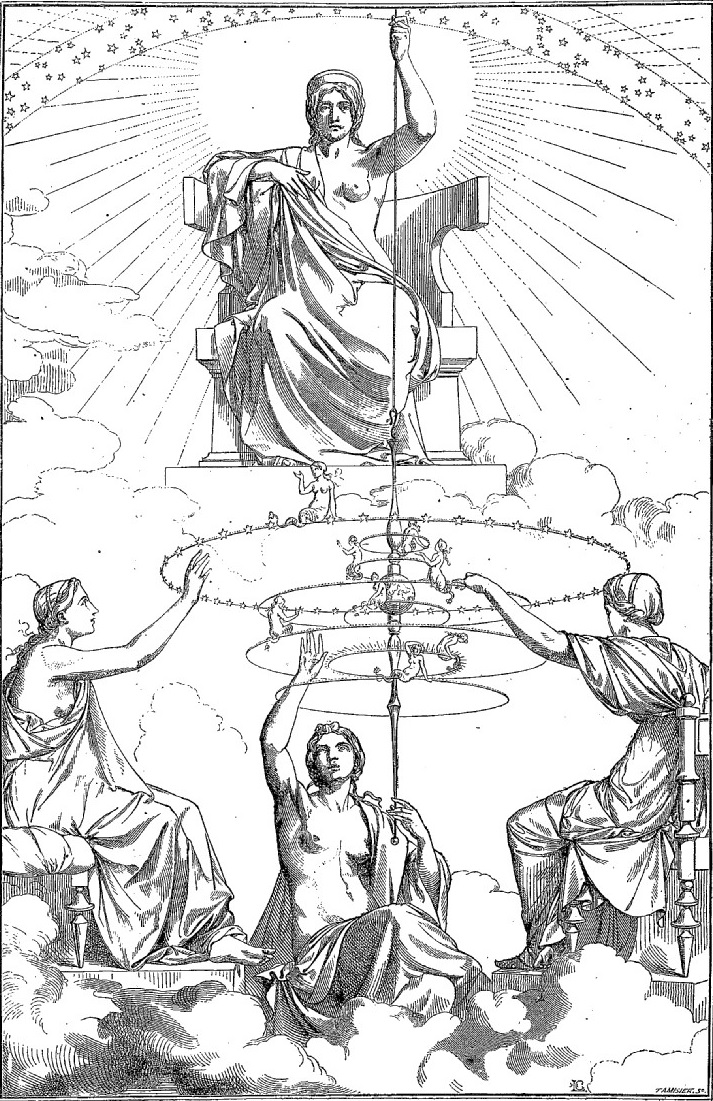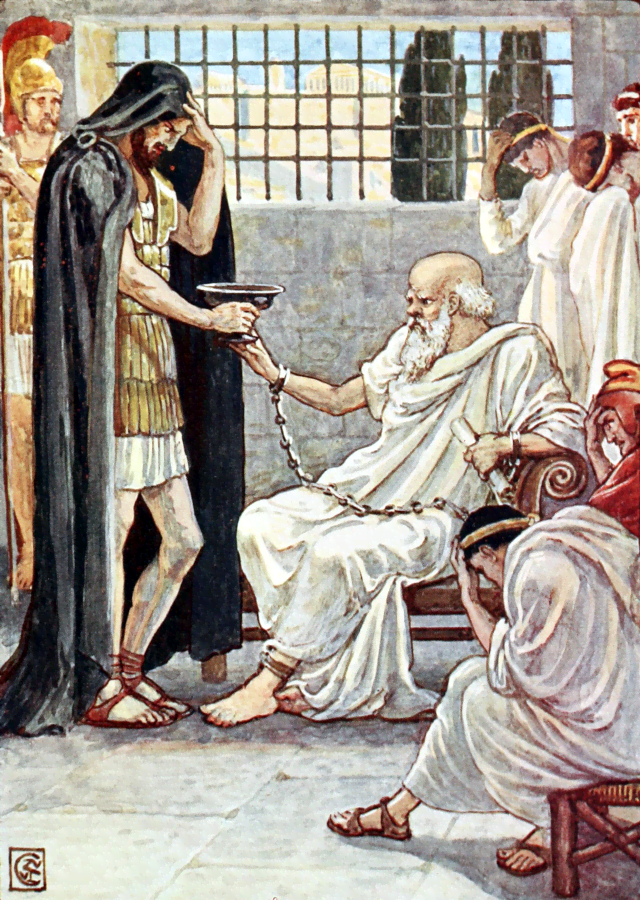It was more than fifteen years ago that I entered the laboratory of Professor Agassiz, and told him I had enrolled my name in the scientific school as a student of natural history. [...] "When do you wish to begin?" he asked.
"Now," I replied.
This seemed to please him, and with an energetic "Very well," he reached from a shelf a huge jar of specimens in yellow alcohol.
"Take this fish," he said, "and look at it; we call it a Hæmulon; by and by I will ask what you have seen."
With that he left me. [...] In ten minutes I had seen all that could be seen in that fish, and started in search of the professor, who had, however, left the museum; [...] nothing was to be done but return to a steadfast gaze at my mute companion. Half an hour passed, an hour, another hour; the fish began to look loathsome. I turned it over and around; looked it in the face—ghastly; from behind, beneath, above, sideways, at a three-quarters view—just as ghastly. I was in despair; at an early hour, I concluded that lunch was necessary; so with infinite relief, the fish was carefully replaced in the jar, and for an hour I was free.
On my return, I learned that Professor Agassiz had been at the museum, but had gone and would not return for several hours. My fellow students were too busy to be disturbed by continued conversation. Slowly I drew forth that hideous fish, and with a feeling of desperation again looked at it. I might not use a magnifying glass; instruments of all kinds were interdicted. My two hands, my two eyes, and the fish; it seemed a most limited field. I pushed my fingers down its throat to see how sharp its teeth were. I began to count the scales in the different rows until I was convinced that that was nonsense. At last a happy thought struck me—I would draw the fish; and now with surprise I began to discover new features in the creature. Just then the professor returned. [...]
"Well, what is it like?"
He listened attentively to my brief rehearsal of the structure of parts whose names were still unknown to me; the fringed gill-arches and movable operculum; the pores of the head, fleshly lips, and lidless eyes; the lateral line, the spinous fin, and forked tail; the compressed and arched body. When I had finished, he waited as if expecting more, and then, with an air of disappointment:
"You have not looked very carefully; why," he continued, more earnestly, "you haven't seen one of the most conspicuous features of the animal, which is as plainly before your eyes as the fish itself. Look again; look again!" And he left me to my misery.
I was piqued; I was mortified. Still more of that wretched fish? But now I set myself to the task with a will, and discovered one new thing after another, until I saw how just the professor's criticism had been. The afternoon passed quickly, and when, towards its close, the professor inquired,
"Do you see it yet?"
"No," I replied. "I am certain I do not, but I see how little I saw before."
"That is next best," said he earnestly, "but I won't hear you now; put away your fish and go home; perhaps you will be ready with a better answer in the morning. I will examine you before you look at the fish."
This was disconcerting; not only must I think of my fish all night, studying, without the object before me, what this unknown but most visible feature might be, but also, without reviewing my new discoveries, I must give an exact account of them the next day. I had a bad memory; so I walked home by Charles River in a distracted state, with my two perplexities.
The cordial greeting from the professor the next morning was reassuring; here was a man who seemed to be quite as anxious as I that I should see for myself what he saw.
"Do you perhaps mean," I asked, "that the fish has symmetrical sides with paired organs?"
(Samuel H. Scudder; The Student, the Fish, and Agassiz)
[Socrates said,] "When I was young, Cebes, I had a prodigious desire to know that department of philosophy which is called the investigation of nature; to know the causes of things, and why a thing is and is created or destroyed appeared to me to be a lofty profession; and I was always agitating myself with the consideration of questions such as these:—Is the growth of animals the result of some decay which the hot and cold principle contracts, as some have said? Is the blood the element with which we think, or the air, or the fire? or perhaps nothing of the kind—but the brain may be the originating power of the perceptions of hearing and sight and smell, and memory and opinion may come from them, and science may be based on memory and opinion when they have attained fixity. And then I went on to examine the corruption of them, and then to the things of heaven and earth, and at last I concluded myself to be utterly and absolutely incapable of these enquiries, as I will satisfactorily prove to you. For I was fascinated by them to such a degree that my eyes grew blind to things which I had seemed to myself, and also to others, to know quite well; I forgot what I had before thought self-evident truths; e.g. such a fact as that the growth of man is the result of eating and drinking; for when by the digestion of food flesh is added to flesh and bone to bone, and whenever there is an aggregation of congenial elements, the lesser bulk becomes larger and the small man great."
(Plato, Phædo, as translated by Benjamin Jowett)
What Socrates here calls [the investigation of nature], is what the moderns call experimental [science]. The danger of directing the attention solely to this study is, as Socrates justly observes, truly great. For by speculating no other causes than such as are instrumental, and which are involved in the darkness of matter, the mental eye becomes at length incapable of beholding true and primary causes, the splendid principles of all things.
(Thomas Taylor's commentary on the above)
We might say that the Aristotle side of philosophy (e.g. natural history, science) teaches one to see the trees, while the Plato side of philosophy (e.g. metaphysics, theology) teaches one to see the forest. Neither is true—half of something can't be whole—but each is a remedy for the other.
Or, suppose we put it another way. It is easier to solve a maze working inwards from both ends than it is to solve it from either side alone; in the same way, should we not try to understand the world top-down (theology) and bottom-up (science), simultaneously?

